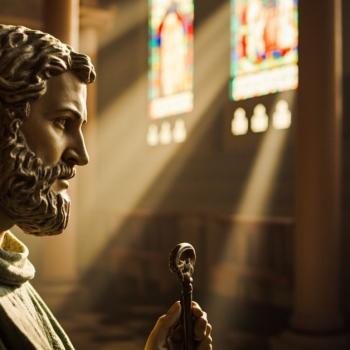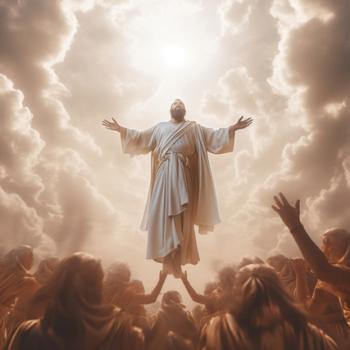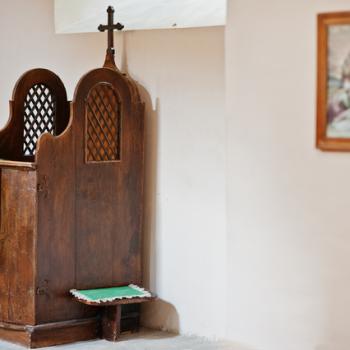This post is in memory of one of my former students who died in a car crash last weekend.

To have faith is to be free, whereas freedom is the need for total satisfaction, for a total answer or meaning. Because of this, you can see that a person who doesn’t seek anything, that says “no,” that resists faith, lives a life full of meaninglessness, of negativity. This attitude is a premature death (as the medieval fathers called sin: premature death). This kind of death is a “no” to a full life. -Luigi Giussani
In the face of tragedies, there’s a two fold temptation to “let God off the hook.” Some will deem these events to be proof that a loving God does not exist. Others will look for consolation in an abstract God that makes everything better and eliminates our sadness. For me, these two responses are too easy…God, or whoever it is that allows violence, innocent suffering, and premature death to occur, owes me an explanation. How can you promise to love me and at the same time to take away the things I love most? It’s moments like these when I am reminded just how much the God of Abraham is a mystery…a mystery that paradoxically is beyond comprehension, but whose face I long to see.
Losing Alfahtee Huey forced me into the position of Jacob in Genesis 32, who had to wrestle with a mysterious figure (who later revealed himself to be God) in order to continue on his journey. Upon hearing this news, I began preparing myself for yet another wrestling match with the Mystery. How could You do this? What possible meaning could such a tragedy have? As I shared these questions with others in the community, I began reminiscing about my first encounter with Alfahtee.
He was notorious for his outbursts of anger and rebelliousness. So it was much to my consternation when I saw his name appear on my roster. “Damn,” I thought to myself, “now I have to deal with this kid.” I was surprised to find that Alfahtee never had any outbursts in my class…probably because he was too busy sleeping or skipping it.
I caught him one day in the hallway and told him that his grade was dropping for having cut so many classes.
“Well, I’ve been cutting school altogether. It’s not just your class. I’ve been having issues at home. But I promise I’ll start coming to class again.”
“Good, because you’re going to need to get back on track if you want to change your grade.” I was about to end it there, but I knew something was off. “So what’s the problem at home?”
“Do you actually want to know, or are you just asking to ask?” He had a way of being unapologetically blunt in conversations. “Because that story is gonna take a while.”
“Well, I have time.”
I was quite unprepared for the next hour and a half, in which Alfahtee opened up to me about his childhood, during which both of his parents died. He told me about his aunt and uncle (a Protestant minister) who were raising him, about his complicated relationship with his faith, which was challenged by the relationship with his uncle. He told me about the source of his anger, and about the conflicts that drove him to cut school.
I was immediately struck by his willingness to be so open with a teacher whom he barely knew, and even more so by the intensity of his questions about life, about suffering, about faith, and by his unrelenting demand for answers.
Oftentimes when my students grow up with intensely religious parents, they’ll either reject religion altogether, or they’ll opt for a cheap sentimental version (“God is great, and he makes my problems better. #blessed”). But Alfahtee’s demand for meaning, for real answers, trumped the temptation of “letting God of the hook.”
We began to spend time after school talking about his questions, and eventually some more students started to join us. It amazed me to see how during these conversations his anger would be transformed into an intense desire, a sincere cry for God to reveal the ultimate purpose of his daily experiences and struggles.
* * *
As a religion teacher, it’s my job to provoke my students to ask questions about meaning in life and to pay attention to the ways God is revealing Himself in their experiences. While most students will “deal” with my provocations just to get a passing grade, there is always a small handful of students that will latch themselves onto my proposal, and who will engage in that eternal wrestling match with God. Alfahtee was one of those students.
I’m sad that his life had to end in such a way, and the question of why God allowed this to happen remains with me. But I’m full of gratitude for having taught Alfahtee. His life on this earth was indeed one that was fully alive. His heart was awake-restless, as St. Augustine might put it-set ablaze by an inexorable need for meaning. His thirst for Truth was too real, too intense to opt for a cop out in front the mystery of his own suffering. Sadly, many of us live long lives on this earth, but our hearts are dead-in a state of perpetual denial of our deep-seated desire for transcendent beauty, truth, and love.
And while I may never have an answer as to why God allowed this to happen, I know that I can start with allowing the memory of Alfahtee to provoke me to look at my own life, my work, my students, with the same intensity, fervency of heart, and freedom with which he faced his short years on this earth.















